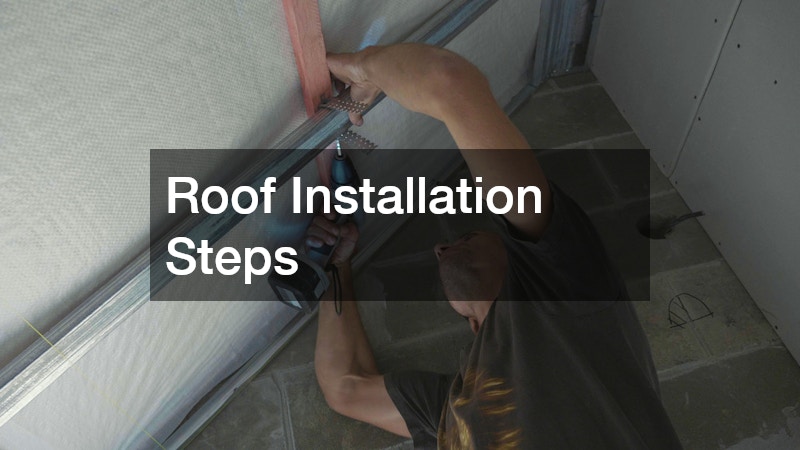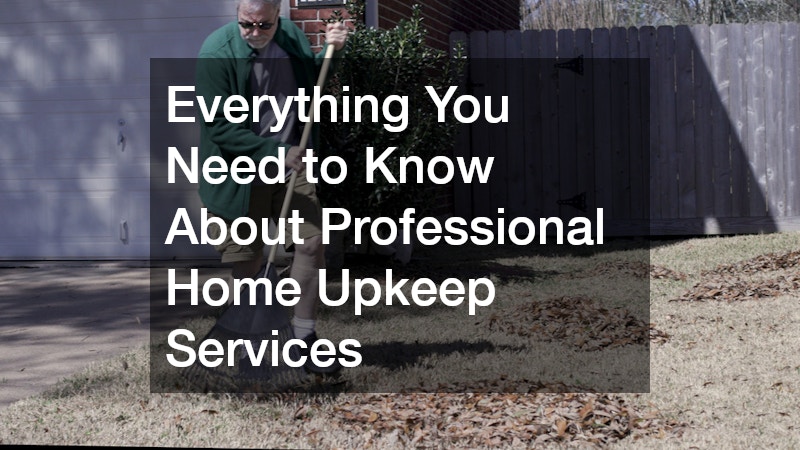Navigating the process of roof repair or replacement after damage can be overwhelming for homeowners, especially when dealing with insurance claims. That’s where roofing companies become essential partners, guiding homeowners through every step of the process. Understanding how roofing companies work with insurance companies can help you make informed decisions, save time, and avoid unnecessary stress. From the initial roof inspection to coordinating with adjusters and completing the actual repairs, reputable roofing professionals play a crucial role in ensuring your insurance claim is handled efficiently.
Whether you’re dealing with storm damage, age-related wear, or sudden leaks, most homeowners will eventually need to work with both a roofing company and an insurance provider. Each has its own language, procedures, and priorities—making it important to choose roofing professionals who are experienced in navigating the insurance landscape. This article will explore what to expect when hiring a roofing company after a damaging event and how they interact with insurers on your behalf.
We’ll break down this process into ten critical stages, including the role of roofing contractors, the importance of accurate roof inspections, and how roof installation is approved and completed after a claim. We’ll also touch on the types of roofing services that most often require insurance coordination and how a roofer can help ensure your claim is properly submitted and paid. This article is designed to demystify the process so homeowners can feel confident and prepared throughout the insurance journey.
The blog also highlights common services such as residential roofing, roof repairs, and installation, showing how these link to the broader insurance process. We’ll discuss the distinction between general roofing services and those that align specifically with insurance claims, as well as how roof inspections and documentation can make or break a claim. You’ll learn what makes roofing contractors valuable advocates when you’re trying to secure the payout you deserve.
By the end of this article, you’ll have a clear understanding of how roofing companies work with insurance companies and be better equipped to choose the right professionals when your roof is at risk. Whether it’s routine maintenance, sudden damage, or major repairs, knowing how the insurance process functions in collaboration with roofing professionals is vital to protecting your home and your peace of mind.
Roofing Company Help
When homeowners experience roof damage from storms, hail, or age-related wear, one of the first calls they make is to a roofing company. These companies specialize in assessing damage, offering estimates, and helping determine the next best steps. While homeowners may feel overwhelmed by the technical aspects of roofing and insurance paperwork, a qualified roofing company can ease the burden by managing communication and documentation with insurers.
The roofing company often takes the lead in compiling damage assessments, photographs, and inspection reports. These materials are submitted to the homeowner’s insurance provider to support a claim. A knowledgeable roofing company understands what insurers look for, which increases the likelihood of an approved claim and a fair settlement. In many cases, roofing professionals even meet with insurance adjusters on-site to validate their findings.
Roofing companies that regularly work with insurance claims have systems in place to streamline the process. They offer clarity to homeowners unsure of what’s covered, guide them on the next steps, and provide realistic timelines. The ability to act as an advocate on behalf of the homeowner is what separates a typical contractor from one with specific insurance expertise.
Roofing Contractors’ Role

Roofing contractors are often the boots on the ground during a roofing project, performing detailed inspections and executing repairs. Their responsibilities go beyond hammering nails—they help assess the condition of a roof, advise on needed services, and coordinate timelines. When insurance is involved, contractors play an even more integral role in the claim process.
Roofing contractors often create official documentation to present to the insurance adjuster. They inspect the roof, identify storm or weather-related damage, and compare their findings to policy coverage. With this insight, contractors can advise homeowners on what’s realistically covered and what may be out-of-pocket, helping manage expectations.
Experienced roofing contractors can speed up the claims process significantly. They know how to communicate with adjusters, understand insurance timelines, and provide accurate, detailed reports. This efficiency often results in quicker approvals, fewer disputes, and higher-quality repairs that meet both homeowner and insurance standards.
How a Roofer Assists
A roofer’s job typically centers on the physical repair or replacement of roofing systems, but their role becomes far more expansive when insurance is involved. Roofers often provide the first professional evaluation of the damage, especially in emergency cases. This early insight can heavily influence the insurance claim that follows.
The roofer often acts as the first responder. Their inspection helps determine if a claim is even necessary. By taking photos, writing detailed notes, and highlighting weather-related issues, they give homeowners the evidence needed to file an effective claim. A roofer may also help fill out forms or directly communicate their findings to the insurer.
Highly skilled roofers working with insurance-based projects are trained to identify subtle signs of damage that adjusters may miss. Their reports not only support insurance claims but also help avoid rejections due to incomplete information. Their boots-on-the-roof insight is indispensable in getting full claim approval.
Roof Inspections Done

Roof inspections are a critical step in determining the condition and safety of your roof. During an inspection, roofing professionals look for signs of wear, water damage, missing shingles, structural issues, and more. These inspections help homeowners maintain their roof, but they’re even more vital when filing insurance claims.
In the process of how roofing companies work with insurance companies, roof inspections provide the documentation insurance providers need to validate a claim. A licensed roofer or inspector will assess the extent of the damage and offer an estimate for necessary repairs. Insurers rely on this report to determine coverage eligibility and the reimbursement amount.
Detailed roof inspections can make or break an insurance claim. Inspections that miss key details might lead to a denial, while a thorough one can uncover all claimable damage. Roofing companies that specialize in insurance work ensure their inspections are aligned with insurer standards, improving claim accuracy and success.
Insurance Roof Repair
Roof repair is one of the most common services needed after storm or hail damage. These repairs can range from replacing a few shingles to fixing major structural issues. For many homeowners, the cost of repair is covered by their home insurance—if the process is handled correctly.
Roofing professionals evaluate the damage and determine what repairs are necessary and eligible under the policy. They offer an estimate based on labor and materials, which is submitted to the insurer. Once approved, they perform the repairs according to industry and insurance standards.
Insurance-backed roof repairs come with documentation, warranties, and accountability. Roofing companies ensure that all work meets building codes and passes inspection. This reduces the chances of disputes with insurance providers and guarantees long-term results for the homeowner.
Roof Installation Steps

Sometimes, the extent of damage to a roof means repairs aren’t enough—full roof installation becomes necessary. This is especially common after major storms, fire, or structural failure. A new roof installation is a large investment, and homeowners often depend on insurance to help cover the cost.
Installation begins with the claim process. Roofing companies provide a full report detailing why a new roof is required rather than repairs. This report includes photos, measurements, and materials needed. Once the claim is approved, the installation is scheduled and executed by licensed contractors.
Insurance-backed installations must follow exacting standards. Roofing companies ensure that the materials and methods used align with the insurer’s expectations. They also help homeowners understand warranties and future maintenance, ensuring lasting protection for their homes.
Roofing Services Guide
Roofing services encompass a wide range of offerings—from leak detection and repairs to full installations and emergency responses. These services are essential to maintaining a home’s value and structural integrity. When damage is sudden or severe, insurance often becomes part of the process.
When examining how roofing companies work with insurance companies, roofing services are tailored to the scope of the insurance claim. Companies document the damage, propose services that align with policy coverage, and execute repairs that meet both insurer and homeowner expectations. They act as liaisons, ensuring nothing is missed or delayed.
Quality roofing services delivered under insurance claims come with added documentation and compliance checks. This not only satisfies insurers but also gives homeowners peace of mind that the work is backed by both a contractor’s warranty and the insurer’s financial support.
Claiming Roof Repairs

Minor or moderate roofing issues—such as small leaks or a few missing shingles—often fall under the category of roof repairs. These can usually be addressed quickly, but many homeowners don’t realize that their insurance may cover even smaller repairs under the right circumstances.
A major component of how roofing companies work with insurance companies is ensuring that local roof repairs are not overlooked. Roofing experts help identify damage that meets insurance criteria, even when it’s not catastrophic. Their role is to build a compelling claim with evidence that supports coverage.
Roofing professionals experienced in insurance claims can prevent denial by presenting strong cases for minor but critical repairs. These small fixes, when addressed early, can prevent more significant issues down the line—saving both the homeowner and insurer larger costs in the future.
Residential Roofing Aid
Residential roofing services are tailored to the specific needs of homeowners, focusing on materials, aesthetics, and neighborhood regulations. These services include everything from replacing damaged shingles to entire roof replacements, often requiring the involvement of insurance when costs are high.
In the workflow of how roofing companies work with insurance companies, residential roofing services are built around documentation, policy alignment, and clear communication. Contractors offer damage reports, create estimates, and help homeowners understand deductibles, depreciation, and timelines for service.
Trusted residential roofing professionals walk homeowners through the entire insurance process, simplifying paperwork and providing regular updates. Their experience ensures the roof not only gets fixed but meets coverage terms, local codes, and high-quality standards.
Insurance & Your Roof
When you need repairs or replacement due to weather or age, hiring professionals who understand the insurance process is vital. That’s where specialized roofing services come in—especially those with a strong background in managing claims.
The intersection of insurance companies and local roofing services begins with a thorough evaluation of the roof’s condition. Service providers in your area know the regional weather patterns, building codes, and typical insurance coverage details. This insight makes it easier to submit accurate claims.
Roofing companies with deep local experience build relationships with insurers over time, making communication smoother. They’re also well-versed in local permit requirements, reducing project delays. All of these factors combine to create a more seamless insurance and repair experience.
Homeowners facing roof damage from storms, aging materials, or unexpected leaks often find themselves navigating a complex insurance process they weren’t prepared for. That’s why understanding how roofing companies work with insurance companies is crucial. Roofing professionals aren’t just contractors—they’re advocates who help guide you through one of the most important financial and structural aspects of homeownership: protecting your roof through proper repairs or replacements, supported by your insurance policy.
Throughout this article, we’ve broken down the steps involved—from initial roof inspections and detailed damage assessments to preparing documentation and working directly with adjusters. Each part of the process plays a role in making sure your insurance claim is accurate, complete, and approved quickly. A qualified roofing company knows what insurers require and how to communicate effectively on your behalf, reducing the chances of claim denial and improving your chances of full coverage.
We also explored the roles of various professionals within a roofing team: the roofing contractor who performs inspections and manages documentation, the roofer who provides boots-on-the-ground insight, and service providers who handle everything from residential roofing to full roof installations. These professionals don’t just fix your roof—they streamline the insurance process, ensuring your home receives the repairs it needs without unnecessary out-of-pocket costs.
Whether you need minor repairs or a full roof replacement, it’s clear that roofing companies are essential in bridging the gap between homeowners and insurance companies. They understand timelines, codes, regional factors, and, most importantly, policy terms. Their expertise in both roofing and insurance claim management is what ensures your home is restored quickly and correctly.
How roofing companies work with insurance companies comes down to partnership. By choosing experienced roofing professionals, homeowners gain access to expert assessments, fair estimates, timely repairs, and smoother insurance experiences. If your roof has suffered damage and you’re wondering where to start, your best first step is reaching out to a roofing company that knows how to work within the insurance system. The right company won’t just fix your roof—they’ll help protect your investment, your home, and your peace of mind.


